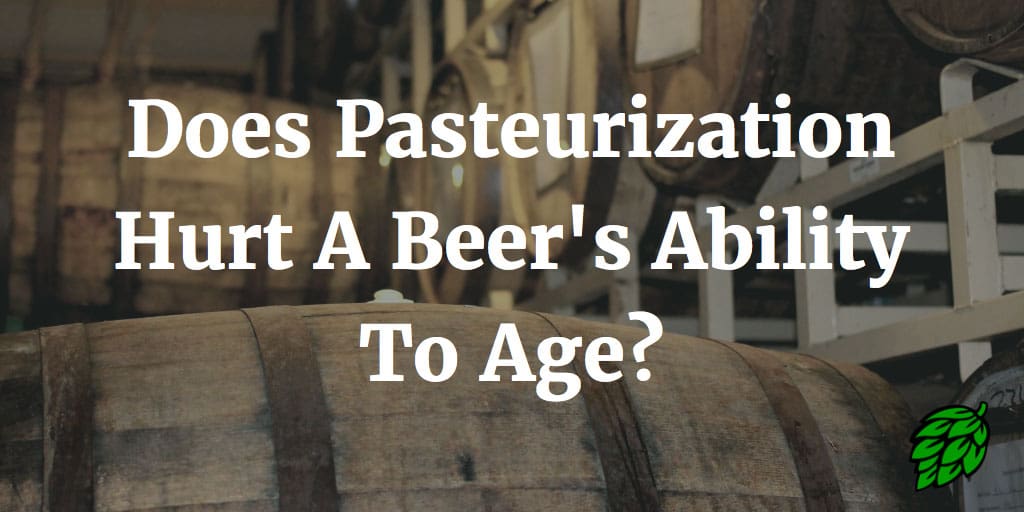
Beer is a wonderful beverage but as hardy as many can be, there are a number of problems that can cause good beer to go bad. Like any food or beverage, unwanted guests like bacteria or other microbes can cause issues. To prevent these pests from putting the hurt on our favorite drink, some brewers pasteurize their beer. This kills any unwanted guests but does pasteurization hurt a beer’s ability to age? Let’s take a look.
Pasteurization and Aging Beer
Pasteurization was discovered in 1864 by French chemist and microbiologist Louis Pasteur. The beer is quickly heated and then cooled, which kills any unwanted microbes (mostly bacteria) that may spoil a beer.
While this process kills off unwanted microbes, it also kills any active yeast which may remain in the beer after bottling or canning. This can prevent unwanted yeast (such as wild yeast) from infecting a beer but it also puts an end to the possibility of a secondary fermentation, which is often intentionally done with bottle-conditioned beers (note that bottle-conditioned beers are not pasteurized).
The question many have is does pasteurization hurt a beer’s ability to age, as it kills the yeast left in a beer. They believe that yeast are necessary to the aging process and without them, a beer won’t age the same. The truth is that pasteurization isn’t going to impact aging of beer.
While yeast may play a small roll in beers that are bottle-conditioned, they aren’t intentionally present in most beers. Even in bottle-conditioned brews, the yeast become inactive after a short period once they’ve metabolized any remaining sugars in the bottled beer. They don’t stay active for years once a beer is put away in the cellar. Even if they did remain active due to available sugars in a brew, the typical cellar temperature between 50º – 55º F is far from the optimal 68º – 72º F that most ale yeast needs to remain active.
What Causes Beer To Age
So if yeast isn’t what makes beer age, what does? Most of what takes place when a beer ages is the process of oxidation. The flavor compounds in beer and alcohol undergo a chemical reaction with oxygen and oxidation forms a number of flavor compounds with time.
While these compounds can be considered desirable in some forms and certain styles of beer, with too much time all beers will suffer from too much oxidation and begin to show the presence of off-flavors we associate with stale beer.
The process of pasteurization doesn’t prevent or slow the oxidation process and aging will still take place just as it would have had the brewer not pasteurized the beer.
Aging Alright
Some see the act of pasteurization as a bad thing for beer. They believe it will have a negative impact on the beers they love. The truth is that brewers pasteurize because they care about their beer and want to ensure it tastes just as intended.
Pasteurization isn’t a bad thing and many great brewers use it for some of their beers, including New Belgium, Deschutes Brewery, Anchor Brewing, Sam Adams, and most recently, Goose Island with the 2016 release of Bourbon County Brand Stout. These brewers do so in order to make sure their beers taste as they should, and want the best for their drinkers and brew.
Like many myths in craft beer, it seems lack of information or misinformation is the cause behind the bad feelings some have about the ability to age a pasteurized beer. Setting the record straight, understanding the true reason beers age, and informing the beer drinking public, should all go a long way towards helping build a better educated beer loving culture.
